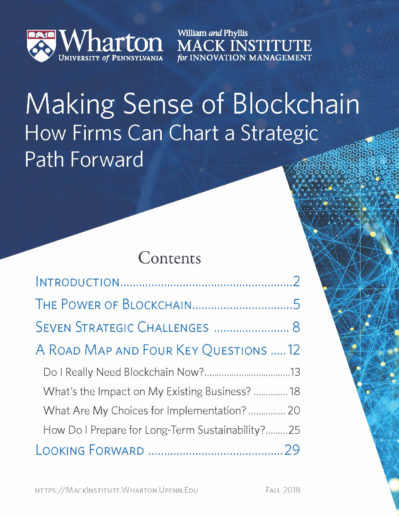 Blockchain is often hailed as one of the most transformative technologies on the horizon, but many firms feel resistant to a tool that is unproven, cost-prohibitive, and above all, threatens traditional revenue sources.
Blockchain is often hailed as one of the most transformative technologies on the horizon, but many firms feel resistant to a tool that is unproven, cost-prohibitive, and above all, threatens traditional revenue sources.
To help firms make informed strategic decisions about this technology, the Mack Institute introduces a new white paper laying out a road map and key questions for blockchain adoption. We offer managers insight on considering whether their organization needs blockchain right now, how it might impact their existing business, and strategic choices for implementation.



